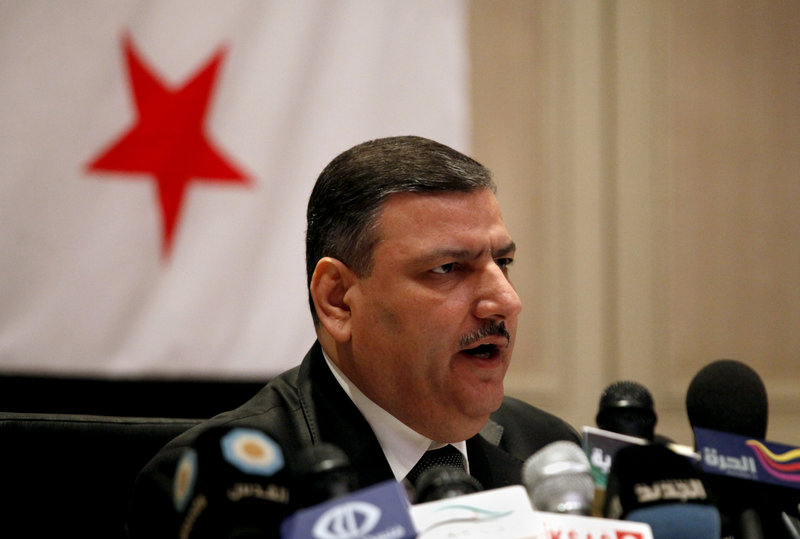BEIRUT — The regime of President Bashar Assad is near collapse and now controls only 30 percent of Syria, the country’s former prime minister said Tuesday in his first comments since defecting to Jordan last week.
The comments by Riad Hijab, the highest-ranking official to defect from the Syrian government, came as the bloodshed inside the country continued. Activists said at least 60 people were killed Tuesday, including at least six children.
“The regime is on the verge of collapse morally, financially and economically in addition to cracks in the military” Hijab told a news conference televised from the Jordanian capital, Amman.
He urged other political and military leaders to defect and join the rebel side and called on the exiled opposition to unite.
But in making his comments, Hijab sought to assure those in the opposition that he was not seeking a political position now or in a free Syria, which he predicted would come soon. “I consider myself a soldier in the path of righteousness,” he said.
Opposition members and rebel leaders who first came out calling for Assad’s ouster 17 months ago have both welcomed and regarded with some suspicion some of the former higher-ranking political and military officials who have joined the cause only recently.
Assad’s regime has been battling the uprising with both military forces and pro-government militias.
The militia, known as the Army of the People, has emerged as a force over the last year as Syria’s military has struggled to put down the rebellion. Its fighters are drawn mainly from Shiite Muslims and Alawites, two sects that form the core of the regime’s support against the largely Sunni Muslim revolt. It wasn’t immediately clear where, or how large, the militia is.
The U.N. says an estimated 2.5 million Syrians have been injured, displaced or face problems securing food or other necessities, a sharp rise from about 1 million three months ago.
“There is an ongoing humanitarian crisis,” said the U.N. humanitarian chief Valerie Amos after meetings in Damascus to try to open routes for more international aid into Syria. “It is important that the fighting stops.”
Amos’ visit came a day after activists said more than 150 people across the country were killed in the ongoing conflict.
Send questions/comments to the editors.



Success. Please wait for the page to reload. If the page does not reload within 5 seconds, please refresh the page.
Enter your email and password to access comments.
Hi, to comment on stories you must . This profile is in addition to your subscription and website login.
Already have a commenting profile? .
Invalid username/password.
Please check your email to confirm and complete your registration.
Only subscribers are eligible to post comments. Please subscribe or login first for digital access. Here’s why.
Use the form below to reset your password. When you've submitted your account email, we will send an email with a reset code.